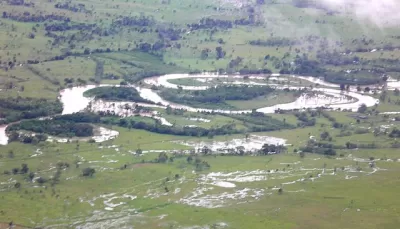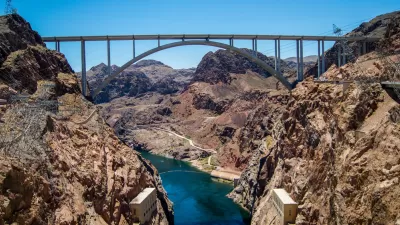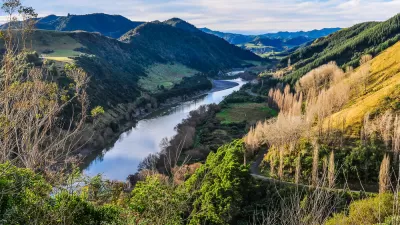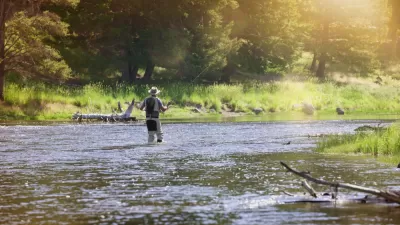Colombia joins New Zealand and India as countries that have recognized the legal status of rivers in recent months.

"In a landmark verdict, Colombia’s Constitutional Court has recognized the Atrato River basin as having rights to 'protection, conservation, maintenance and restoration,'" reports Sarah Bardeen for the International Rivers site.
The river is the third around the world to receive legal protections, after the Whanganui River in New Zealand was granted the status of a human entity in March. The ruling on the legal status of the Atrato River actually came earlier, in November 2016, but has only recently been publicized. As explained by Bardeen, Colombia's decision regarding the Atrato River doesn't include the same language about the river's human or living status. The decision does, however, "offer protection to the Atrato River while simultaneously guaranteeing the fundamental rights of the communities that inhabit its banks. Under this new paradigm, known as 'biocultural rights,' the Court has asserted that the most effective way to protect ethnic communities’ rights is through biodiversity conservation and ecosystem restoration."
In March, the Yamuna and Ganges rivers in India were also granted legal status as living entities, following the lead set by New Zealand.
FULL STORY: Colombian River Gains Legal Rights

Planetizen Federal Action Tracker
A weekly monitor of how Trump’s orders and actions are impacting planners and planning in America.

Congressman Proposes Bill to Rename DC Metro “Trump Train”
The Make Autorail Great Again Act would withhold federal funding to the system until the Washington Metropolitan Area Transit Authority (WMATA), rebrands as the Washington Metropolitan Authority for Greater Access (WMAGA).

DARTSpace Platform Streamlines Dallas TOD Application Process
The Dallas transit agency hopes a shorter permitting timeline will boost transit-oriented development around rail stations.

Renters Now Outnumber Homeowners in Over 200 US Suburbs
High housing costs in city centers and the new-found flexibility offered by remote work are pushing more renters to suburban areas.

The Tiny, Adorable $7,000 Car Turning Japan Onto EVs
The single seat Mibot charges from a regular plug as quickly as an iPad, and is about half the price of an average EV.

Supreme Court Ruling in Pipeline Case Guts Federal Environmental Law
The decision limits the scope of a federal law that mandates extensive environmental impact reviews of energy, infrastructure, and transportation projects.
Urban Design for Planners 1: Software Tools
This six-course series explores essential urban design concepts using open source software and equips planners with the tools they need to participate fully in the urban design process.
Planning for Universal Design
Learn the tools for implementing Universal Design in planning regulations.
Municipality of Princeton
Roanoke Valley-Alleghany Regional Commission
City of Mt Shasta
City of Camden Redevelopment Agency
City of Astoria
Transportation Research & Education Center (TREC) at Portland State University
US High Speed Rail Association
City of Camden Redevelopment Agency
Municipality of Princeton (NJ)





























